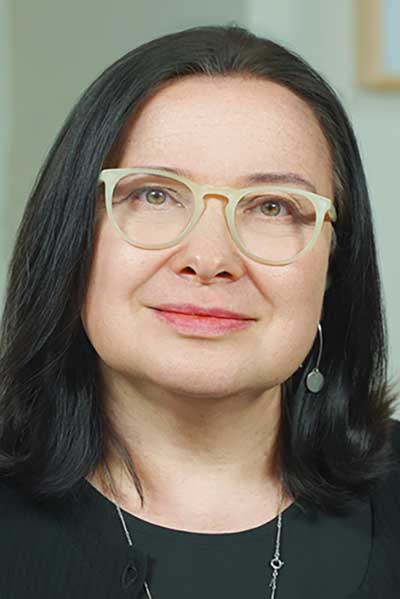
The concept of disease modification has been well-established in rheumatoid arthritis and other chronic diseases, but not in lupus. Recently approved therapies as well as the pipeline of novel therapies in clinical trials may be changing that.
“As of 2023, lupus is a chronic disease that we can successfully manage with the hope of achieving remission. The availability of targeted therapeutics has provided the framework for the concept of effective disease management and modification to become relevant,” said Anca Askanase, MD, MPH, Director of the Lupus Center, Professor of Medicine at Columbia University, and a member of the ACR Committee for Corporate Relations.
Dr. Askanase will discuss whether the drugs currently used to treat lupus can be classified as disease-modifying agents during Lupus Prevention and Disease-Modifying Anti-Lupus Drugs (DMALDs), Are We There Yet?, which will be presented on Sunday, Nov. 12, at 9 a.m. PT in Room 11A-B of the San Diego Convention Center. The session will be available on demand within 24 hours of the live presentation for registered 2023 participants.

Maria Dall’Era, MD, Professor of Medicine and Chief of the Division of Rheumatology at the University of California, San Francisco, will discuss disease modification in lupus nephritis, as well as the newly approved therapies belimumab and voclosporin.
“Despite enormous advances, data on genetic susceptibility has not fully allowed for us to use genes to predict which people are going to get damage quicker or in what parts of the body,” Dr. Askanase said.
She was part of a task force convened in 2022 to establish the framework for disease modification in systemic lupus erythematosus (SLE). The task force proposed the need to show sustained improvement in disease activity, prevention of flares, and minimization of steroid use over time. Long-term outcomes — the prevention or slowdown of the progression of damage — should be demonstrated at five years and beyond, they determined.
“As expected, we were able to find excellent long-term data for hydroxychloroquine, mycophenolate mofetil, and other immunosuppressants that show good data at one year, and some at three to five years; however, there is a lack of evidence for long-term disease modification,” she explained. “We were disappointed to see long-term data missing for several of the main immunosuppressant medications, as this diminishes our ability to evaluate, based on evidence, their potential for disease modification.”

David Karp, MD, PhD, Professor and Chief of the Rheumatic Diseases Division at the University of Texas Southwest Medical Center and Past President of the ACR (2020–2021), will discuss whether lupus can be prevented. His research focuses on how early providers can start intercepting the course of disease for a given individual to prevent irreversible organ- or tissue-damaging inflammation.
“My inquiry is into whether we can determine when a person’s immune system, for whatever reason, is headed toward a dysregulated state that becomes SLE,” he explained.
Dr. Karp has been investigating a National Institutes of Health (NIH)-supported clinical trial using hydroxychloroquine to prevent lupus in people at risk.
“Each participant is in the trial for two years. We had some issues with COVID-19 slowing down recruitment, but we plan to have the trial data by ACR Convergence 2024,” Dr. Karp said. “In the meantime, we have learned a lot about prevention of lupus in people with few or no symptoms.”

Registered ACR Convergence 2024 Participants:
Watch the Replay
Select ACR Convergence 2024 scientific sessions are available to registered participants for on-demand viewing through October 10, 2025. Log in to the meeting website to continue your ACR Convergence experience.
